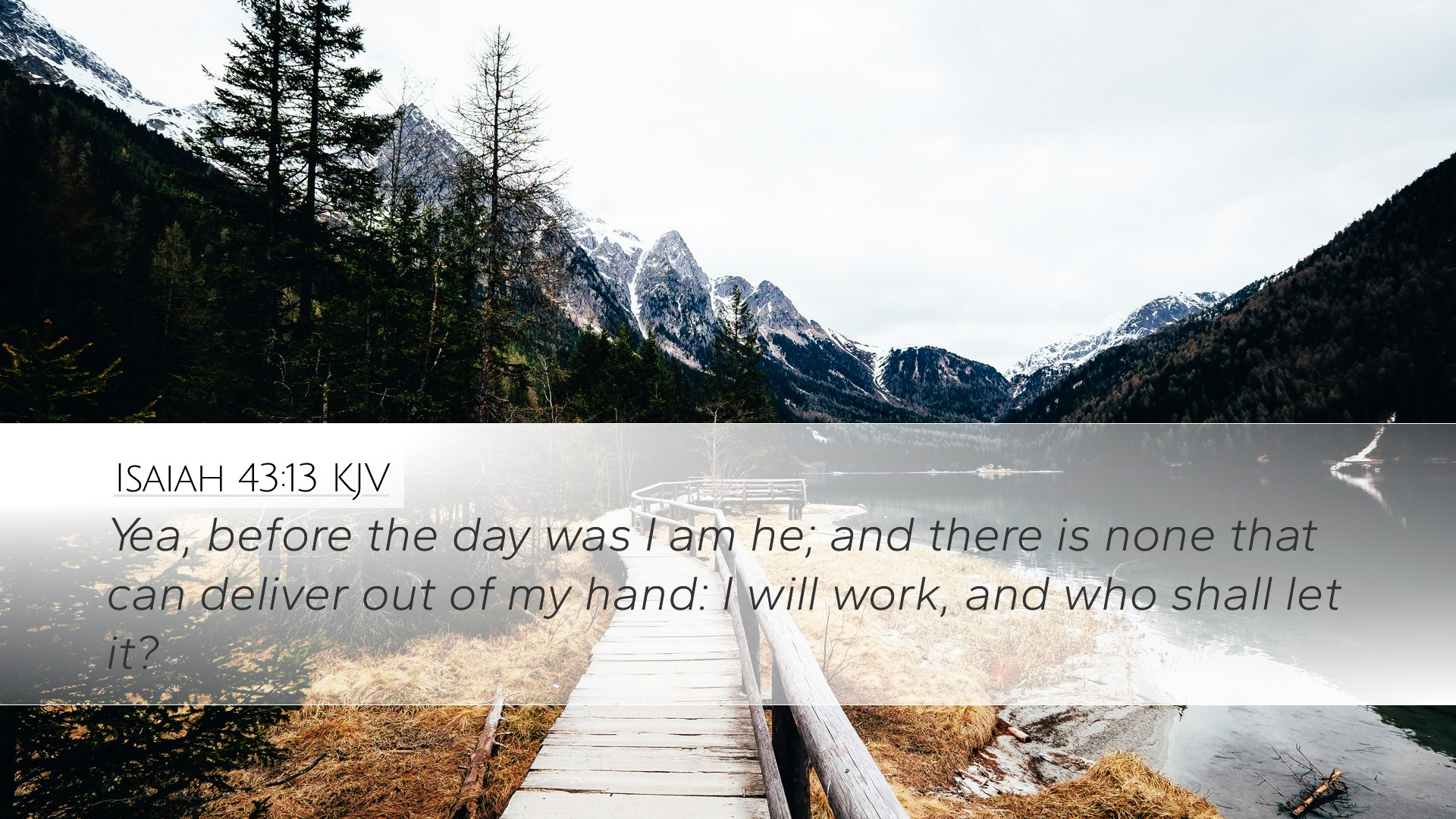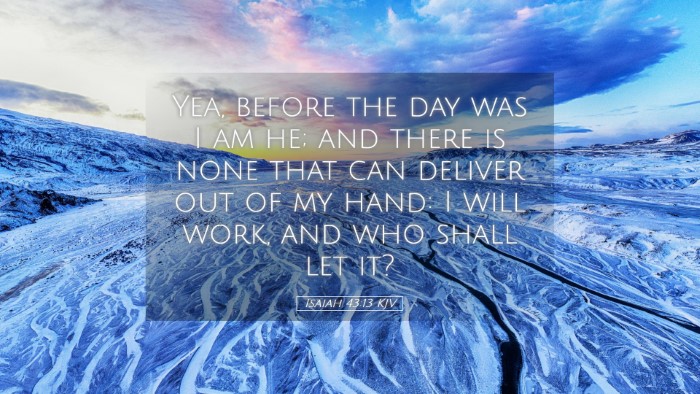Commentary on Isaiah 43:13
Verse Text: "Yea, before the day was I am he; and there is none that can deliver out of my hand: I will work, and who shall let it?" (KJV)
Introduction
This profound declaration in Isaiah 43:13 emphasizes the eternal sovereignty of God and His unmatched power to deliver His people. In this verse, God proclaims His timeless existence and the authority He wields over all creation. Drawing insights from respected public domain commentaries, we will explore its theological implications and practical applications for pastors, scholars, and believers.
The Authority of God
Matthew Henry: Henry emphasizes the unique quality of God's existence, asserting that "before the day was" communicates God's preexistence and eternal nature. He highlights the declaration "I am he" as a profound assertion of God's identity and authority. This reflects God's constancy and the relevance of His power throughout all ages.
Albert Barnes: Barnes elaborates on the implications of God's control in saying, "there is none that can deliver out of my hand." This statement underscores that no one can rescue themselves or others from God's will or plans. His sovereign purpose is unchallengeable, and His plans will unfold regardless of human actions.
Adam Clarke: Clarke details the significance of God's pronouncement about working without obstruction: "I will work, and who shall let it?" Therein lies the assurance that God's work is unstoppable. Clarke notes that God's interventions in history are purposeful, and nothing can hinder His divine plans.
The Eternal Unchangeableness of God
This verse also reflects God's unchangeable nature. The phrase "before the day was" conveys that God exists outside the constraints of time. This characteristic is critical for believers' understanding of faithfulness and reliability in God’s promises.
As Henry noted, this characteristic gives believers comfort; they can trust in His eternal power and presence, knowing that God's intentions are grounded in His everlasting character. His constant being assures us of His ongoing commitment to redeem, protect, and guide.
God's Deliverance
The phrase "none that can deliver out of my hand" speaks to His role as the ultimate deliverer. The context of this verse is particularly prominent for Israel, who faced oppression and exile. God’s assertion is a reminder of His ability to rescue them from their circumstances, offering hope amidst despair.
Barnes notes that this promises a form of deliverance that is beyond human endeavors and expectations. It affirms that the authentic liberation comes from recognizing God's hand in their lives rather than relying on their strength or understanding. Clarke adds that this deliverance is sometimes misunderstood; thus, it is crucial to recognize that true freedom comes from adherence to God's will.
Application for Believers
Pastors and theologians can draw multiple applications from this verse:
- Trust in God’s Sovereignty: Believers must recognize that God is actively at work in their lives, orchestrating events according to His divine purpose.
- Faith in Deliverance: Just as God promises deliverance to Israel, individuals can trust His power to deliver them from sin and circumstances.
- God’s Timeless Nature: The eternal nature of God encourages believers to maintain perspective amid trials, remembering that God sees the bigger picture.
- Call to Obedience: Understanding that God’s work cannot be thwarted invites a response of obedience, aligning personal goals with God's directives.
Conclusion
Isaiah 43:13 serves as a powerful reminder of God's sovereignty, eternal nature, and divine authority to deliver. By reflecting on this verse, we come to a deeper understanding of God's character and His engagement with humanity. Pastors and scholars are encouraged to explore these insights further, finding both comfort and motivation in God's ever-present power and plan.


